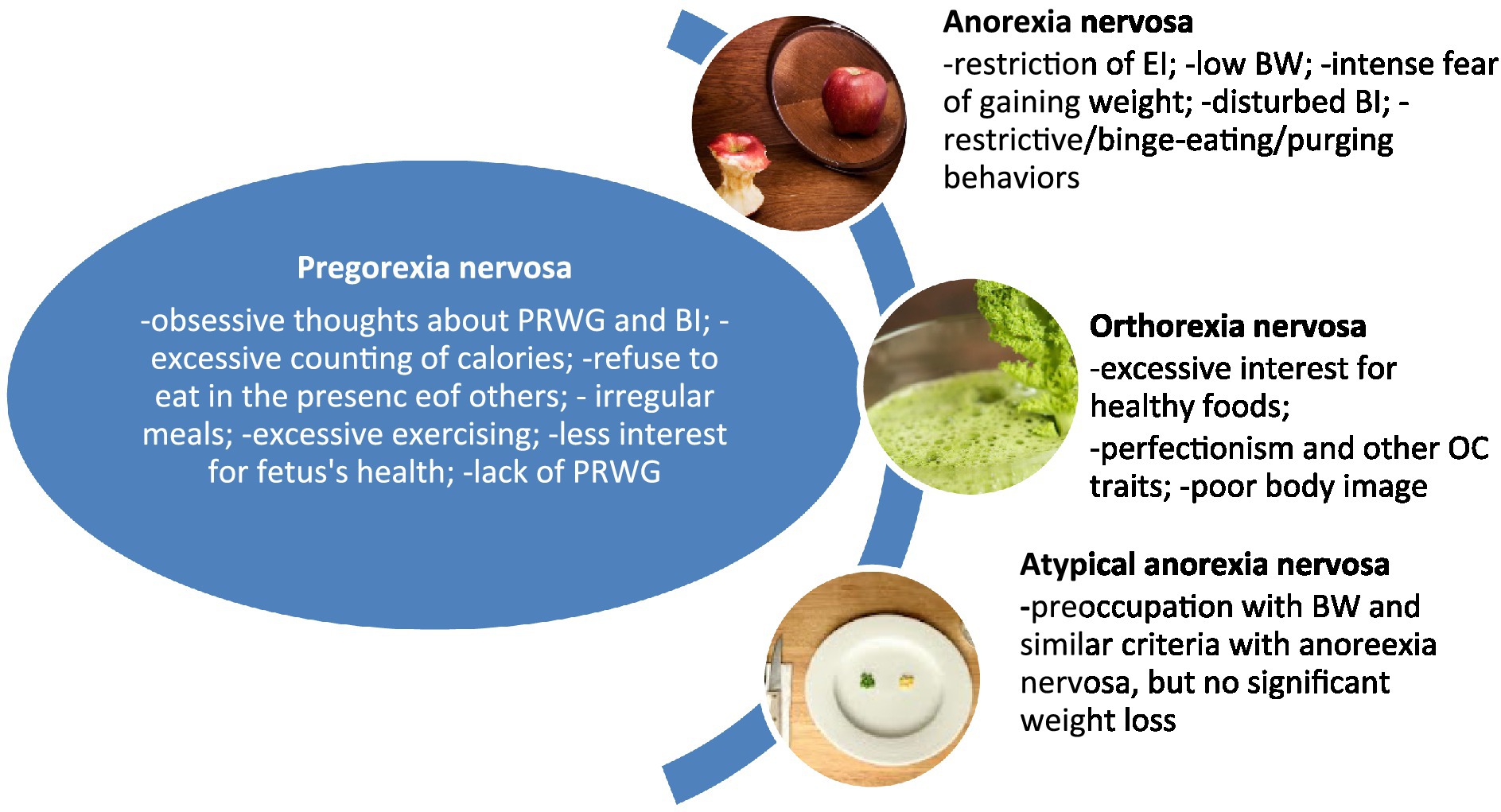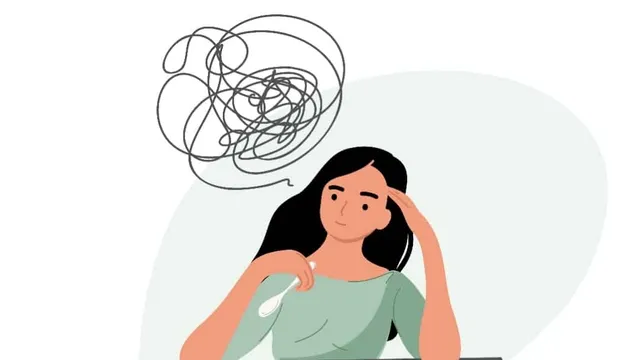Orthorexia is an obsessive fixation on healthy eating that can lead to severe mental and physical health issues. In today’s society where clean eating and wellness trends are prevalent, it’s important to raise awareness about the dark side of these behaviors.
Orthorexia nervosa, although not officially recognized as a clinical diagnosis, is becoming more recognized as a serious eating disorder. Individuals with orthorexia become obsessed with eating only “pure” and “clean” foods, often restricting their diet to extreme measures. This can result in malnutrition, social isolation, anxiety, and a poor quality of life.
Understanding orthorexia and its potential consequences is crucial for promoting a balanced and healthy approach to diet and wellness.

Credit: www.frontiersin.org
The Rise Of Orthorexia
Orthorexia is an obsessive focus on healthy eating, where individuals are preoccupied with consuming only “clean” or “pure” food. The term Orthorexia was coined by Dr. Steven Bratman in 1997, describing it as an unhealthy obsession with eating “right”. While disorders like anorexia and bulimia are well-known, Orthorexia is a relatively new phenomenon that is gaining attention.
The rise of Orthorexia can be attributed to various factors, including social media and health trends. Social media platforms are flooded with influencers and bloggers who promote extreme diets and showcase their seemingly perfect lifestyles. This influence contributes to the increasing pressure individuals feel to eat a certain way for optimal health.
Health trends such as clean eating, detox diets, and elimination diets also play a role in the rise of Orthorexia. Many people are seeking healthier lifestyles and are bombarded with conflicting information about what constitutes a healthy diet. This confusion and desire for perfection can lead to an unhealthy obsession with food and rigid eating habits.
It is important to note that Orthorexia is not recognized as an official disorder in the Diagnostic and Statistical Manual of Mental Disorders (DSM-5). However, its impact on individuals’ mental and physical well-being should not be taken lightly. If you or someone you know is struggling with an unhealthy obsession with healthy eating, seeking professional help is essential for recovery and maintaining a balanced approach to nutrition.

Credit: www.listennotes.com
Identifying Orthorexia
Orthorexia is an obsessive focus on healthy eating, which can have a profound impact on mental health. By identifying warning signs, it is important to recognize when healthy eating habits become extreme and turn into an unhealthy obsession. Some of these warning signs include an excessive preoccupation with the quality and purity of food, strict dietary rules or restrictions, avoiding certain food groups, and feelings of guilt or anxiety when deviating from these rules. People with orthorexia may also experience social isolation and a distorted body image. It is crucial to address orthorexia and seek help when necessary, as it can lead to physical and emotional health issues. Raising awareness about this condition and promoting a balanced approach to nutrition is essential in supporting individuals struggling with orthorexia.
Health Risks Of Orthorexia
Orthorexia is an obsessive focus on healthy eating, leading to nutritional deficiencies and severe physical consequences. This unhealthy fixation can result in inadequate intake of essential nutrients such as vitamins, minerals, and macronutrients, which are vital for optimal bodily function. As a result, individuals suffering from orthorexia may experience physical consequences such as weakened immune system, disrupted hormonal balance, and compromised bone health. Such conditions can lead to increased susceptibility to illnesses, hormonal imbalances, and osteoporosis. It’s crucial to recognize the potential health risks associated with orthorexia, as early intervention and professional support can help individuals overcome this detrimental obsession and restore their physical and emotional well-being.
Treatment And Recovery
Orthorexia, an obsessive focus on healthy eating, requires treatment encompassing therapy and nutrition guidance to achieve recovery. Counseling helps address underlying emotional factors, while adopting a balanced approach to food fosters a sustainable, healthy relationship with eating.
| Therapeutic Approaches | Support and Resources |
| Professional counseling helps address underlying issues. | Support groups offer understanding and camaraderie. |
| Medical intervention may be necessary in severe cases. | Online resources provide information and coping strategies. |
Preventing Orthorexia
Educate on balanced nutrition and mindful eating habits. Raise awareness about the dangers of fixation on healthy foods.
Emphasize moderation and variety in diet. Encourage seeking professional help if obsessive thoughts arise.

Credit: www.facebook.com
Frequently Asked Questions For Orthorexia Obsessive Healthy Eating
What Are The Most Common Disorders That May Coexist With Orthorexia?
Common disorders that may coexist with orthorexia include obsessive-compulsive disorder, anxiety disorders, depression, eating disorders like anorexia nervosa and bulimia nervosa, and body dysmorphic disorder.
Which Obsession Characterizes The Disordered Eating Pattern Orthorexia?
Orthorexia is characterized by an obsessive fixation on healthy eating. It is a disordered eating pattern that involves extreme restrictions and a preoccupation with the purity of food.
What Is The Meaning Of Rexia?
Rexia is a word root that pertains to the concept of “appetite. ” It is often used in medical terminology relating to appetite disorders and abnormalities.
What Are The Symptoms Of Orthorexia?
Orthorexia symptoms may include obsession with healthy eating, anxiety over food choices, restriction on certain food groups, and social withdrawal due to dietary rules.
Conclusion
In sum, prioritizing mental and emotional well-being is crucial when addressing orthorexia. Seeking professional guidance for nutrient balance and varied dietary choices can lead to a balanced approach to healthy eating. Embracing flexibility, self-compassion, and mindfulness around food choices is key to fostering a healthy relationship with food and achieving overall well-being.

